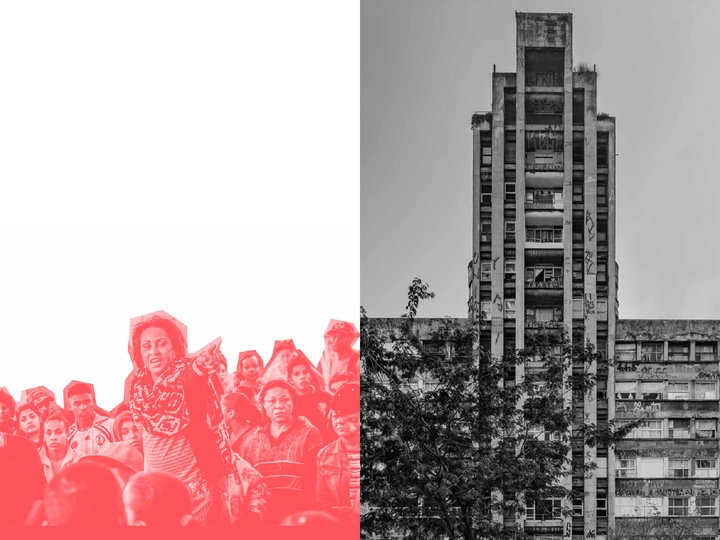Matriarchal Counterspace

Yi Sun
Wo-Men Work is a research and design collective founded by Chiara Oggioni and Sun Yi (2021), aiming to establish a critical spatial practice and challenge existing power structures by working on projects from an intersectional angle and across different scales. While working with a variety of architectural mediums, much of their work uses filmmaking to narrate intimate stories of overlooked spaces and put spatial production’s past and present narratives in conversation with their future. Their projects “Nail Salon, Sex Rooms: Spatial Implication of Women’s Labor” have been exhibited at PMQ and HKU (Hong Kong, 2022) and MIT as part of the Shift+W “Changing Room” exhibition (Cambridge, MA, 2024). The movie “Sex Rooms” has been selected as a Finalist for the Transfer Global Architecture Platform Video Award (2023).
Yi and Chiara are architects, researchers, and Lecturers at The University of Hong Kong. In 2024 they are Visiting Lecturers at Escola Da Cidade in São Paulo, Brazil.
Counterspace
- a pocket of collective resistance from marginalized groups embedded within larger contexts that enable a collective disruption of the dominant narrative;
- a surface area to prepare food in a kitchen.
In Brazilian informal settlements, women, often the chief breadwinners, are typically the heads of households and assume a leading role in their communities. These women symbolize resistance and presence in a context of insecurity and informality. They cook, distribute food, take care of the children and the elderly, work. The upgrading of favelas in Brazil is a long-lasting topic, as is the inefficacy of housing policies. Still, minor improvements to the urban fabric often correspond to an increase in the cost of renting, resulting in a lack of housing affordability. Since the 1990s the occupations of abandoned buildings, most of which are initiated and led by women, have multiplied across Brazil, offering other possibilities for collective living in dense urban contexts.
What are the hidden narratives behind the collective processes of counterspace construction? How does informal spatial production contribute to the evolution of the formal city?
Counterspace explores the link between feminist spaces, architecture, and displacement, questioning the new/old, formal/informal, center/margins, dichotomies of the contemporary city. It embraces uncertainty and change in favor of alternative ways of living and a collective sense of belonging.
In 2024, with Escola Da Cidade, we will produce a series of portraits, linking stories to spaces, to understand the bottom-up forces of displaced communities behind the evolution of the urban fabric.
We will unveil the spatial agency of women’s lead groups in occupied buildings in downtown São Paulo and how these women appropriate and produce space in many different ways across scales: a community kitchen, a beauty salon, a workshop, an assembly, an event. A collective counterspace.